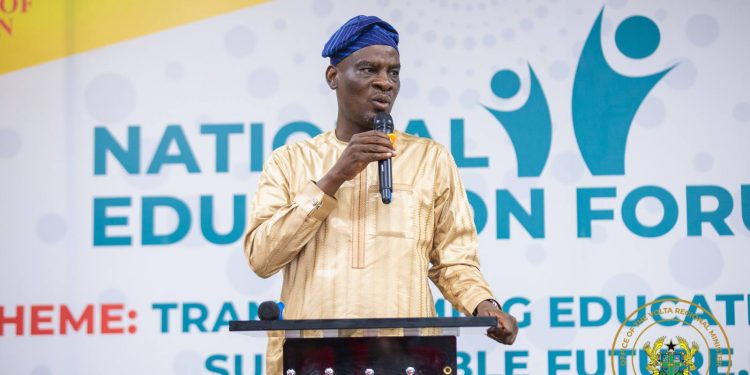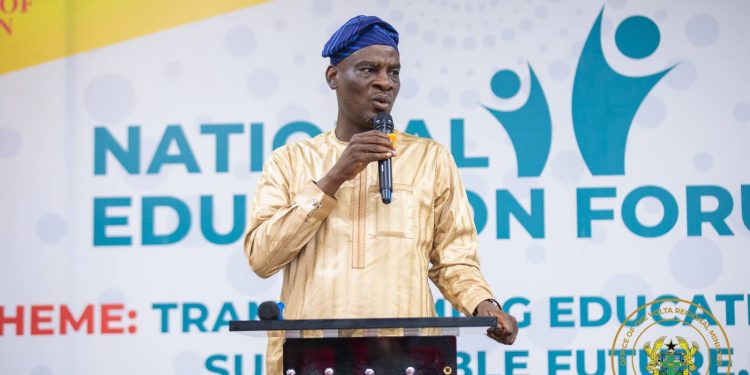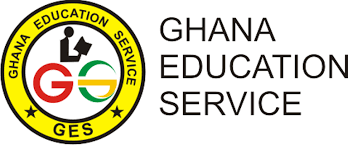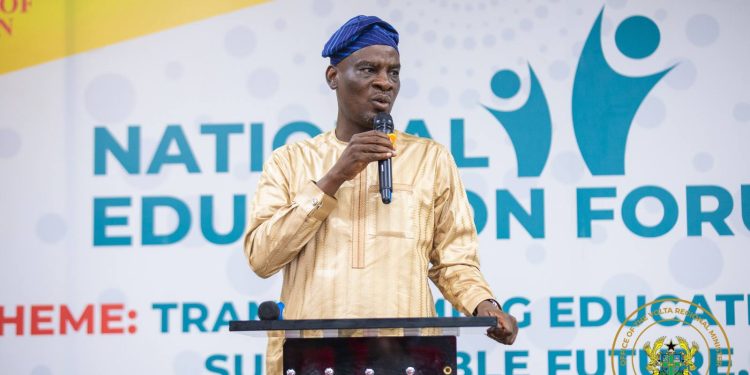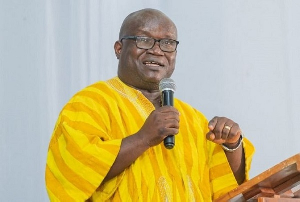Education Minister Haruna Iddrisu said he refused to wear a bulletproof vest during a recent tour of schools in the conflict-prone Upper East Region, a decision he described as both symbolic and principled.
Speaking at Zebilla Senior High Technical School during the final week of the West African Senior School Certificate Examination (WASSCE), Mr. Iddrisu told students that the protective gear, while intended to ensure his personal safety, would have sent the wrong message in an academic environment.
“I was given a bulletproof jacket to wear. I declined—not because I do not value my life, but because I value yours too,” Mr. Iddrisu said. “More importantly, it was to send a signal that bulletproof doesn’t belong in an academic learning environment—today, tomorrow, and forever.”
The remarks came amid heightened security concerns in parts of northern Ghana, where sporadic violence has disrupted education and displaced communities. Despite the risks, Mr. Iddrisu emphasized that schools must remain sanctuaries of peace and learning.
The minister also criticized the growing presence of armed security personnel around school facilities, warning that such measures could erode the sense of safety that students need to thrive.
“The presence of security forces, even when well-intentioned, can create an atmosphere of fear,” he said. “That’s not conducive to learning.”
Mr. Iddrisu called on local leaders, educators, and families to work collectively to insulate schools from regional tensions, reiterating that peace is a prerequisite for educational development.
Pivoting to national education policy, Mr. Iddrisu announced that the government plans to inject one billion Ghanaian cedis (approximately $85 million) into school infrastructure in 2026, a move aimed at phasing out the double-track system introduced to manage overcrowding in secondary schools.
“Under President Mahama’s education agenda, we will invest heavily to ensure no child is denied access to quality education due to infrastructural constraints,” Mr. Iddrisu said.
The government has made expanding education access a key pillar of its social policy, especially in underserved regions. Mr. Iddrisu assured students that their academic efforts were not in vain and expressed national pride in their perseverance.
“Remain confident,” he told the candidates. “The nation is watching, and we are proud of you.”
The WASSCE, taken by final-year secondary school students across West Africa, plays a critical role in determining access to tertiary education. Despite the unrest, Ghanaian officials say they are committed to ensuring examinations continue without disruption.



